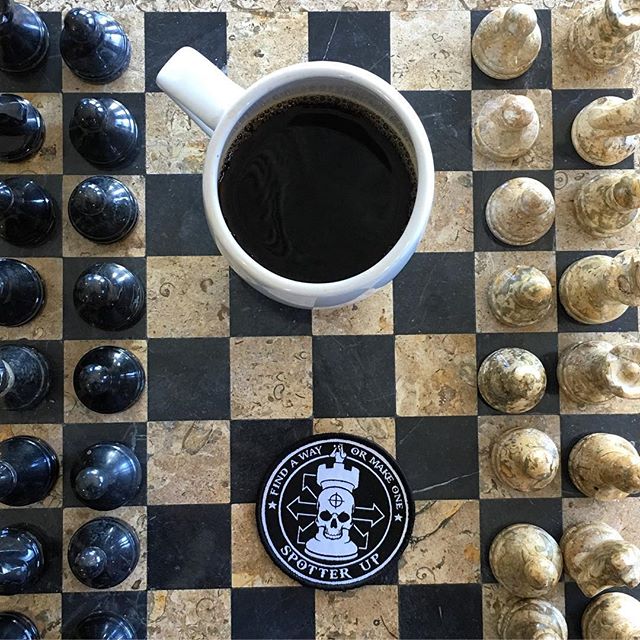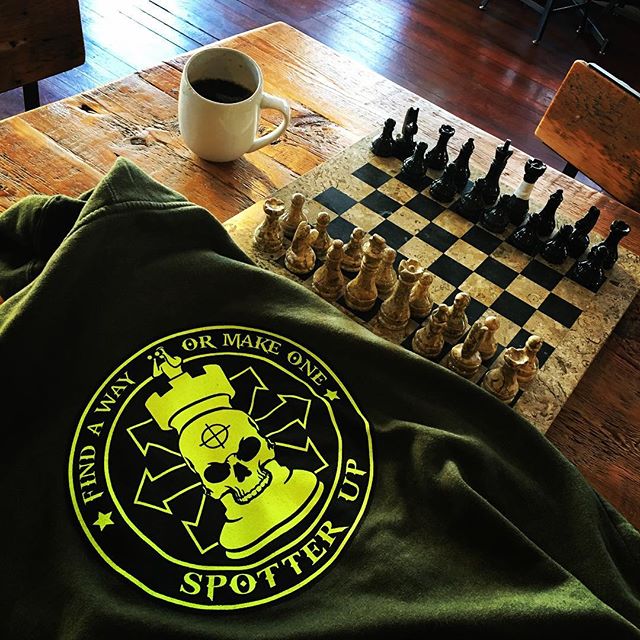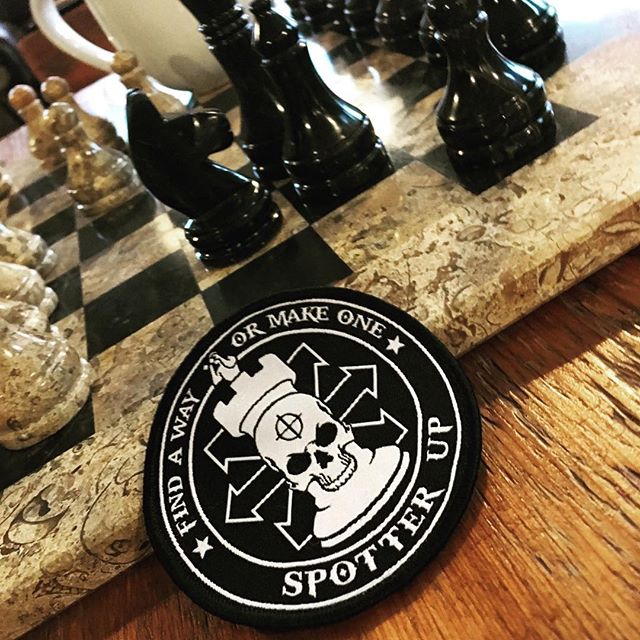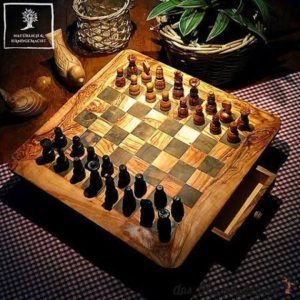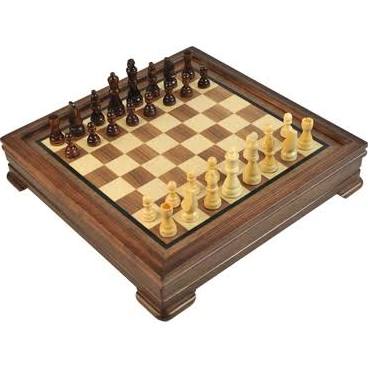Chess offers many benefits for those who choose to play it. For those who choose to learn more about the rules of Chess in order to become at least an above average player it is very rewarding. The rules of Chess are simple although the strategy is not. Chess is as much a memory game as an analytical game.
I propose that playing Chess with a well-crafted set made of wood or stone is more satisfying to the touch than if playing the game with cheaply made plastic models. Carved set pieces are eye-catching, and offer a bit of weight that cheaply made plastic chess sets cannot. A good fine wood board with an inlay will last for a long time and provide years of amusement.
Chess games can be purchased online for as little as $10.00 for a plastic chess set and wooden models come in right around $100.00. Wood chess sets can be had for about the same price and can be purchased in different kinds of wood like teak, olive, maple, cherry and the like.
Reading material on Chess is easily available and computer chess can be found online if you want to improve as a player.
The classic game of chess is said to have originated in Eastern India, likely 1500 years ago. The legend goes: A ruler of India tasked his wise men to devise a game of strategy that would enable the children of his royal family to become better generals and thinkers on and off the battlefield. Another story is that a wise Chinese Mandarin named Hansing created it. Lastly, it has been said that Solomon of the Bible created it. All of these stories have been contested. No one living is certain about its origins but the common theme here is that wise men developed the game. What we do know is that chess has been mentioned as far back as 600 A.D.
Modern wargaming can trace its roots back to a training system used to train Prussian and German armies called Kriegsspiel (lit: “war play” or “war game”). The first set of these rules was created in 1812 by Lieutenant Georg Leopold von Reiswitz and his son Georg Heinrich Rudolf von Reiswitz of the Prussian Army in 1812. I wrote an article about Kriegsspiel found here.
Von Reiswtiz titled his rules, Instructions for the Representation of Tactical Maneuvers under the Guise of a Wargame. Anyone who has an interest in tactics and strategists should know the name Helmuth von Loltke the Elder, Chief of Prussian General Staff. Von Loltke thought well enough of Krieggspiel to insist it be used as one of the warfare theory learning systems made available to his men. With the backing of Otto von Bismarck, Kriegsspiel became a teaching tool for German and Prussian officers. As a result of the Prussian military utilizing Kriegsspiel it other militaries began to adopt its use too. One notable benefit of using Krieggspiel was Motlke’s Prussian officers became more independent and responsible.
The literal translation of the German word Krieggspiel (war play) can be misleading to those unfamiliar with wargaming and its applications. The word game is found in the conjunction wargame yet this doesn’t mean that all gameplay is absent of seriousness. The general purpose of all wargaming per Peter Perla’s 1990 book The Art of Wargaming, Naval Institute Press, 1990, p.274 is ‘to immerse participants in an environment with the required level of realism to improve their decision-making ability and/or the actual decisions they make.’
Krieggspiel involves gaming mechanics and includes several elements such as “aims and objectives, rules, scenarios, players, umpires, analysis, friction, uncertainty, chance and luck.”
Henry Michael Temple created a lesser know variant of chess in 1899. Here is the background on Temple’s variant:
“In this game each player can see their own pieces, but not those of their opponent. For this reason, it is necessary to have a third person (or computer) act as a referee, with full information about the progress of the game. When it is a player’s turn he or she will attempt a move, which the referee will declare to be ‘legal’ or ‘illegal’. If the move is illegal, the player tries again; if it is legal, that move stands. Each player is given information about checks and captures. They may also ask the referee if there are any legal captures with a pawn. Since the position of the opponent’s pieces is unknown, Kriegspiel is not a game with perfect information. Chess Kriegspiel derives from a war game which was used in 19th century Germany to train military officers. As each player cannot see his or her opponents pieces, the game is sometimes referred to as blind chess.”
Today chess games are used by some therapists as a form of psychotherapy for treating mental disorders by psychological rather than medical means. Chess has many benefits for the mind. It is an excellent tool for teaching children how to think maturely such as:
- Focusing: Having to observe carefully and concentrate;
- Visualizing: Imagining a sequence of actions before it happens;
- Thinking ahead: With the concept of “think first, then act”;
- Weighing options: Finding pros and cons of various actions;
- Analyzing Concretely: Logical decisions are better than impulsive;
- Thinking abstractly: Taught to consider the bigger picture;
- Planning: Developing long range goals and bringing them about;
- Juggling multiple considerations simultaneously: Having to weigh various factors all at once.
Here’s additional info on the benefits of chess play:
- Promotes brain growth: Games like chess that challenge the brain actually stimulate the growth of dendrites, the bodies that send out signals from the brain’s neuron cells. With more dendrites, neural communication within the brain improves and becomes faster. Think of your brain like a computer processor. The tree-like branches of dendrites fire signals that communicate to other neurons, which makes that computer processor operate at a fast, optimal state. Interaction with people in challenging activities also fuels dendrite growth, and chess is a perfect example.
- It exercises both sides of the brain: A German study indicated that when chess players were asked to identify chess positions and geometric shapes, both the left and right hemispheres of the brain became highly active. Their reaction times to the simple shapes were the same, but the experts were using both sides of their brains to more quickly respond to the chess position questions.
- Raises your IQ: Do smart people play chess, or does chess make people smart? At least one scientific study has shown that playing the game can actually raise a person’s IQ. A study of 4,000 Venezuelan students produced significant rises in the IQ scores of both boys and girls after four months of chess instruction. So grab a chess board and improve your IQ!
- Helps prevent Alzheimer’s: As we age, it becomes increasingly important to give the brain a workout, just as you would every other major muscle group, in order to keep it healthy and fit. A recent study featured in The New England Journal of Medicine found that people over 75 who engage in brain-games like chess are less likely to develop dementia than their non-board-game-playing peers. The saying “use it or lose it” certainly applies here, as a sedentary brain can decrease brain power. All the more reason to play chess before you turn 75.
- Sparks your creativity: Playing chess helps unleash your originality, since it activates the right side of the brain, the side responsible for creativity. One four-year study had students from grades 7 to 9 play chess, use computers, or do other activities once a week for 32 weeks to see which activity fostered the most growth in creative thinking. The chess group scored higher in all measures of creativity, with originality being their biggest area of gain.
- Increases problem-solving skills: A chess match requires fast thinking and problem-solving on the fly because your opponent is constantly changing the parameters. A 1992 study conducted on 450 fifth-grade students in New Brunswick indicated that those who learned to play chess scored significantly higher on standardized tests compared to those who did not play chess.
- Teaches planning and foresight: One of the last parts of the brain to develop during adolescence is the prefrontal cortex, the area responsible for judgment, planning and self-control. Because playing chess requires strategic and critical thinking, it helps promote prefrontal cortex development and helps teenagers make better decisions in all areas of life, perhaps keeping them from making an irresponsible, risky choice.
- Improves reading skills: In an oft-cited 1991 study, Dr. Stuart Margulies studied the reading performance of 53 elementary school students who participated in a chess program and evaluated them compared to non-chess-playing students in the district and around the country. He found definitive results that playing chess caused increased performance in reading. In a district where the average students tested below the national average, kids from the district who played the game tested above it.
- Optimizes memory improvement: Chess players know that playing chess improves your memory, mainly because of the complex rules you have to remember, as well as the memory recall needed when trying to avoid previous mistakes or remembering a certain opponent’s playing style. Good chess players have exceptional memory performance and recall. A study of Pennsylvania sixth-graders found that students who had never before played chess improved their memories and verbal skills after playing.
- Improves recovery from stroke or disability: Chess develops fine motor skills in individuals who have disability or have suffered a stroke or other physically debilitating accident. This form of rehabilitation requires the motion of chess pieces in different directions (forward, backward, diagonally forward motion, diagonally backward motion), which can help develop and fine tune a patient’s motor skills, while the mental effort required to play the game can improve cognitive and communication skills. Playing can also stimulate deep concentration and calm, helping to center and relax patients who are experiencing different degrees of anxiety.
War games like chess are not just played by geeky analysts and academics. If you want to be a well-rounded thinking man try playing chess after doing your gym time. Knowing tactics and strategy ain’t such a bad thing and should supplement your trigger time.
Wargaming is communal, it helps you understand one another better for team cohesiveness, helps you use a different part of your noggin, and when you’re not working the physical muscles it lets you ‘geek’ out. Some games come in ziplock baggies and have few playing pieces so you can transport them without hassle. Miniature chess sets can be found online for under $10.00. Playing chess is a good way to expand your mind.
Lastly, I have no idea how accurate this list is but here goes:
USA-based business leaders who play chess: Bill Gates (founder of Microsoft, born in Seattle), Paul Allen (co-founder of Microsoft, born in Seattle), Lawrence Ellison (co-founder of Oracle, born in New York City), Roelof Botha (venture capitalist at Sequoia Capital, early investor in YouTube, born in South Africa), Peter Andreas Thiel (co-founder of PayPal, early Facebook investor, born in Germany), Pierre Omidyar (founder of eBay, French-born Iranian-American entrepreneur), Michael Birch (co-founder of Bebo, born in England), Barney Pell (co-founder of Powerset, born in Hollywood), David Cowan (Bessemer Ventures, co-founder Verisign, raised in NY), Auren Hoffman (Silicon Valley entrepreneur, CEO RapLeaf, born in New York), Carl Icahn (chairman of Imclone, raised in New York), George Soros (Wall Street investor, born in Hungary).
Artists and musicians: Bono (U2), Madonna, John Lennon, Yoko Ono, Guy Ritchie, Frank Sinatra, Salvador Dali, Ludwig van Beethoven, David Bowie, Ringo Starr, Bob Dylan, Sting, Enrico Caruso, Ray Charles, Cher, Frederic Chopin, Felix Mendelssohn, David Oistrakh, Sergei Prokofiev, Dmitri Shostakovich, Richard Strauss, Giuseppe Verdi, Marcel Duchamp.
Movie and TV stars: Will Smith, Woody Allen, Charlie Chaplin, Marilyn Monroe, Ben Affleck, Salma Hayek, Nicholas Cage, Christina Ricci, Bill Cosby, Julia Roberts, Jude Law, Keanu Reeves, Antonio Banderas, Steve Martin, Anthony Hopkins, Matt Damon, Susan Sarandon, Danny DeVito, Martin Lawrence, Brooke Shields, Marlon Brando, Marlene Dietrich, Mikhail Baryshnikov, Ingmar Bergman, Mel Brooks, Alfred Hitchcock, Ian Holm, Harvey Keitel, Ben Kingsley, Stanley Kubrick, David Letterman, James Mason, Paul Newman, Chuck Norris, Edward Norton, Bill O’Reilly, Al Pacino, Jason Priestley, Tim Robbins, Kevin Spacey, David Spade, Sylvester Stallone, Oliver Stone, Barbra Streisand, John Wayne, Robin Williams.
Nobel Prize winners: Albert Einstein (physics), Albert Michelson (physics), Heike Kamerlingh Onnes (physics), Max Planck (physics), Carl Wieman (physics), Zhores Alferov (physics), William Lawrence Bragg (physics), Percy Bridgman (physics), Richard Feynman (physics), Peter Kapitza (physicist), Sinclair Lewis (literature), Gabriel Garcia Marquez (literature), William Yeats (literature), Elias Canetti (literature), John Cockroft (literature), Samuel Beckett (literature), Ivo Andric (literature), Isaac Singer (literature), Henryk Sienkiewicz (literature), William Golding (literature), John Steinbeck (literature), John Nash (economics), John Harsanyi (economics), Edward Prescott (economics), Gerard Debreu (economics), John Harsanyi (economics), James Heckman (economics), Simon Herbert (economics), Dudley Herschbach (chemistry), Sir Robert Robinson (chemistry), Herbert Sir Frederick Soddy (chemistry), John Cornforth (chemistry), Bertrand Russell (philosopher), Bernard Katz (medicine).
Writers: William Shakespeare, George Bernard Shaw, Isaac Asimov, Charles Dickens, Lewis Carroll, Rudyard Kipling, Edgar Allen Poe, Robert Louis Stevenson, Honore de Balzac, Miguel de Cervantes, Jack London, Fyodor Dostoevsky, Anton Chekhov, Maxim Gorky, Johann Goethe, Poul Anderson, Martin Amis, Cleveland Amory, Shalom Aleichem, Antoine de Saint-Exupery, Vladimir Nabokov, George Orwell, Boris Pasternak, Alexander Pushkin, Salman Rusdie, Lev Tolstoy, Roger Zelazny, Oscar Wilde.
Supermodels: Carmen Kass, Heidi Klum.
Sport stars: Kobe Bryant (NBA), Wilt Chamberlain (NBA), Kareem Abdul-Jabbar (NBA), Larry Bird (NBA), Danny Ainge (NBA), Latrell Sprewell (NBA), Steve Smith (NBA), Jason Williams (NBA), Gary Sheffield (baseball player in New York Yankees), LaVar Arrington (NFL linebacker of Washington Redskins), Curtis Martin (NFL running back), Anna Kournikova (tennis), John McEnroe (tennis), Roger Federer (tennis), Boris Becker (tennis), Jennifer Capriati (tennis), Ivan Lendl (tennis), Rafael Benitez (soccer manager), Rick Carlisle (NBA, coach of Indiana Pacers), Flip Saunders (NBA, coach of Detroit Pistons), Bill Walsh (football coach of San Francisco 49ers), Dominic Hasek (hockey), Vitaly Klitschko (boxer), Lennox Lewis (boxer), Mike Powell (long jump world record holder).
Royalty and Politicians: Al Gore (former US vice-president), Queen Elizabeth II (queen of England), Queen Elizabeth I (queen of England), King Louis IV (French King), Abraham Lincoln (US President), George Washington (US President), Napoleon Bonaparte (French Emperor), Winston Churchill (British Prime Minister), Theodore Roosevelt (US President), Jimmy Carter (US President), Thomas Jefferson (US President), Richard Nixon (US President), John Quincy Adams (US President), Mikhail Gorbachev (former USSR president), Boris Yeltsin (Russian leader), Jacques Chirac (French president), Queen Victoria (Queen of England), Czar Peter the Great (Russian Emperor), Josef Stalin (USSR leader), Yao Sui (Chinese Emperor), King Alfonso XIII (King of Spain), Akbar (Mongol Emperor), Cory Aquino (Philippine President), Arthur Balfour (British Prime Minister), King Stephan Bathory (King of Poland), Menachem Begin (Israeli Prime Minister), Empress Catherine II (Russian Empress), King Charles I (King of England), Fidel Castro (Cuban President), Muammar Gaddafi (Libya leader), Nikita Khruschev (USSR premier), Gamal Abdul Nasser (Egyptian leader), Anwar Sadat (Egyptian leader), Benjamin Netanyahu (Israeli Prime Minister), Arnold Schwarzenegger (actor and California governor), Henry Kissinger (American politician), La Fayette (military leader).
Other famous people: John Paul II (pope), Isaac Newton (physicist), Christopher Columbus (explorer), Barron Hilton (Chairman of Hilton Hotel Chain), Alan Turing (mathematician and inventor of the first chess computer), David Rockefeller (philanthropist), Baron Albert Rothschild (philanthropist), Giovanni Casanova (Italian playboy), Al Capone (criminal), Benjamin Franklin (American politician and inventor), Harry Houdini (escape artist), Sir Francis Bacon (philosopher), Karl Marx (German philosopher), Aristotle Onassis (Greek businessman), Joseph Pulitzer (newspaper publisher), Jean-Jacques Rousseau (philosopher), Jean-Paul Sartre (philosopher), Howard Stern (radio and TV personality), Voltaire (philosopher).
References
www.sunstar.com.ph
www.chessville.com/BillWall/CelebritiesandChess.htm
www.geocities.com/siliconvalley/lab/7378/famous.htm

